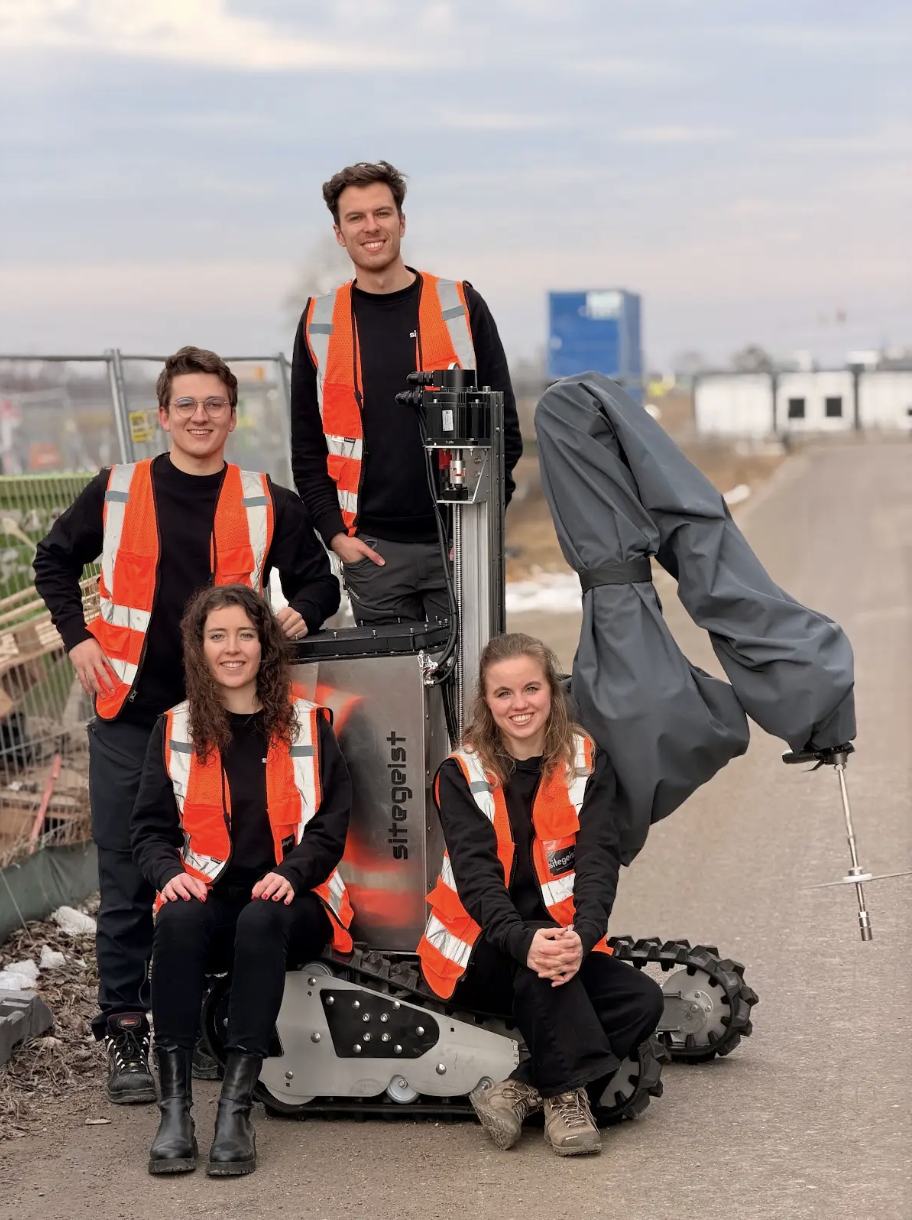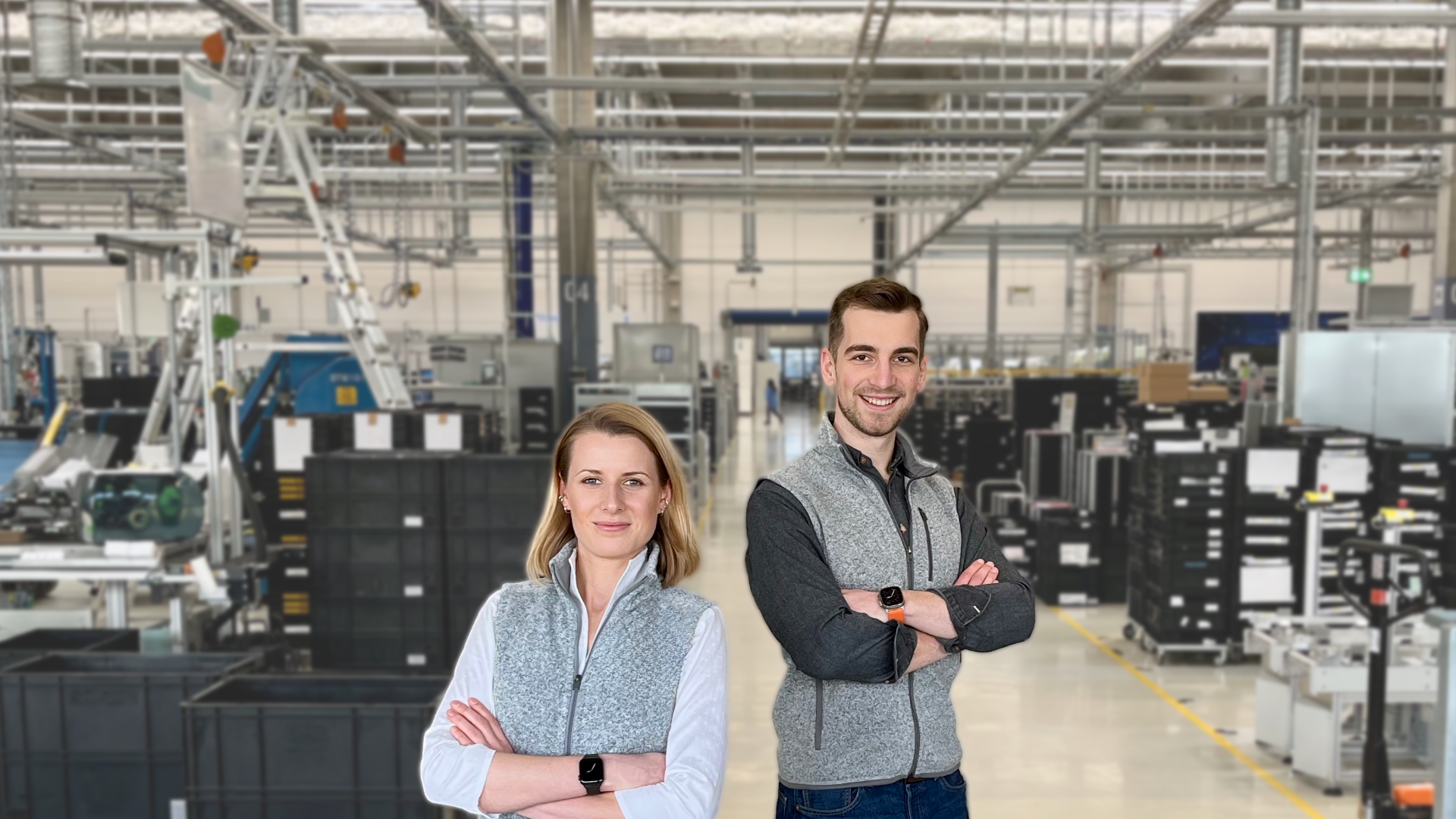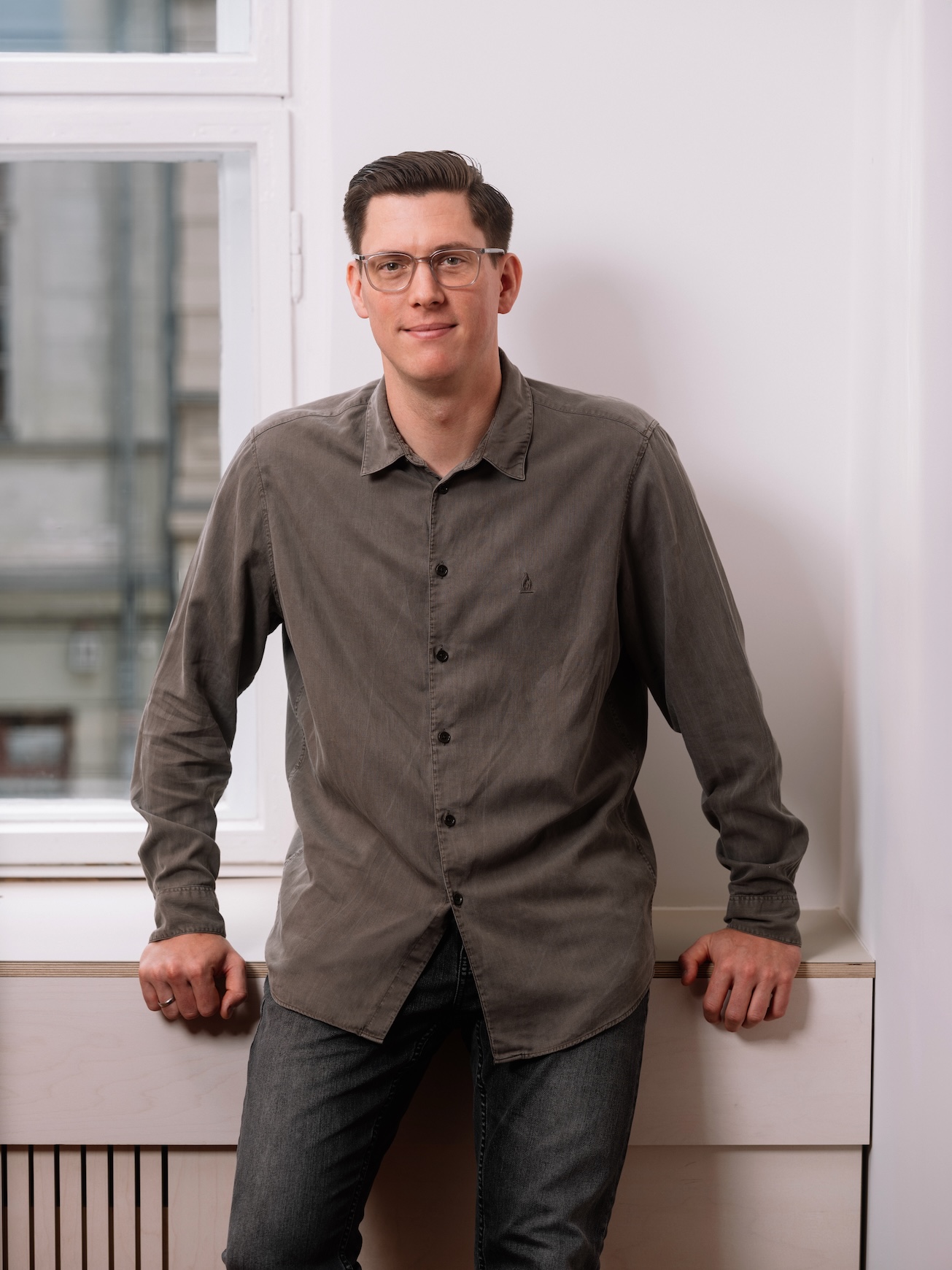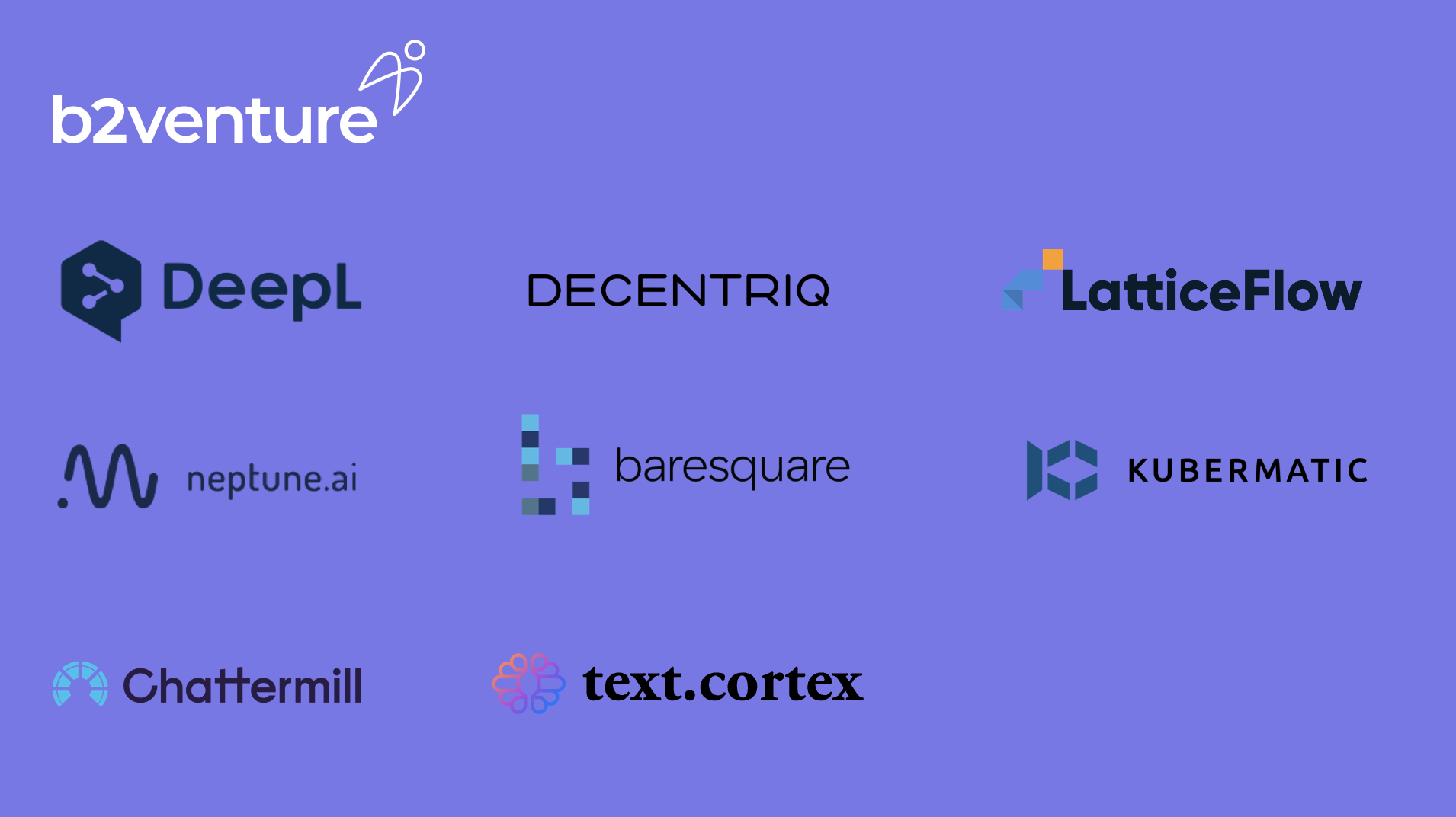Luis Cabiedes on markets and risks
Luis Cabiedes on markets and risks
Angel investors are mentors and sparring partners to all of us and an integral part of the b2venture angel community. And one of the most active and generous is Luis Cabiedes. He started investing in early-stage technology startups in 1998 while heading media company Europa Press Group. He now operates his own VC firm, Cabiedes and Partners. Luis has invested in more than a hundred Internet startups, including Ole, Myalert, and, more recently, Privalia, Trovit and BlaBlaCar. He is also a lecturer at IESE Business School where he teaches Entrepreneurship and Entrepreneurial Finance.

Q: You have been investing in startups for more than 20 years now. What is your perspective on the entrepreneurial ecosystem in Europe and especially Spain and what is the major difference today compared to 1998 when you started investing in startups?
Let me start by sharing my view on the worldwide entrepreneurial ecosystem. Entrepreneurship is now mainstream. Being an entrepreneur or investing in startups does not turn you into a special animal anymore. Very few people knew about the Internet and entrepreneurship 20 years ago but today it is standard. When I was at IESE back then there was little thought around it while it now takes up to 50% of the courses. As for Spain: At the time, the action was in Silicon Valley and London but very little was happening in Spain. Today things are happening everywhere, and Barcelona is a big hub as well. But still, Europe has been unable to catch up. China has grown fast and there is this unique place of Silicon Valley with world class artists in entrepreneurship and VC.
Q: As an investor you have seen many cycles of the capital markets. Do you agree with me that our VC investments are strongly correlated with them?
VC is correlated with the capital markets, there is no doubt about that. Not on a year-to-year basis but in a lagged correlation with a huge beta. There is lots of literature about it. We in early stages are working for exits and the final destination of our entrepreneurial journey is the IPO or M&A, which are both highly correlated with the capital markets. That is why we are dependent on capital markets. So maybe the best years are not when the markets are the best but the opposite. If you invest in a seed stage company today, in a sense you are investing in the capital markets of 8 years from now. A good diversification in time if you wish.
Q: At which point are we in the cycle at the moment?
I think that we are at the highest historical levels in many measures. First “money flowing into VC”: It has never been this high in terms of amount of money flowing into VC. But that doesn’t mean we are in a maximum. I am not ready to call and maximum and say we are at the peak, because no matter how high markets are, they have proven they can always go higher still. Looking at it from a historical perspective, we are in a dangerous phase. We never have been in a 0% interest rate period for such a long time. No one knows when this liquidity abundance will stop. It will — but when and how? So, I am not ready to call it a maximum, but I am very interested in the amount of money invested because historically it negatively correlates with returns. When I read that we reach new highs of VC amounts it is actually a cause for concern rather than something to celebrate.
Q: I agree with the argument of more competition and higher valuations leading to lower returns. On the other hand, larger funds are needed to make our startups really big. Facebook back then in 2004 to 2008 would’ve never been possible in Europe due to lack of large amounts of growth funding. This is changing now and that is good, isn’t it?
I partially agree with this. Europe has not been able to produce a company like Facebook, but I am not sure if capital is the decisive factor here. Capital follows opportunity. We had a Spanish company quite like Facebook, called Tuenti, which went for EUR 70m — of course a fraction of Facebook. So, think of it from an investor’s perspective: Downside risks are the same in both markets, but the upside potential is much higher in the US because of market size. You can run more risks, and should deploy more capital in the largest markets. It has been happening for decades: If we would have had Google, we would have financed a Facebook and if we would have had Yahoo, we would have financed a Google. Look at China — The market is huge, the Chinese companies are larger than their European equivalents, so money flows there. It all has to do with the reward that you as an investor get if you have a good exit. So — yes, of course capital helps create big companies based on visions. But the way to start solving the chicken & egg problem does not start with capital. The opportunities must be larger, and money will flow.
Q: Does Europe have a cultural, legal or language problem then?
500m people as “unified Europe” would be the best thing to entrepreneurship in Europe for sure. Money follows the opportunity, so let’s create the opportunity. Those anti-European discussions drive me mad. Brexit is the worst thing happening to entrepreneurship in Europe. I am talking from an economic standpoint, not a political one. Language is no longer a barrier, and neither is culture. We have companies like DeepL to remove this barrier. The unified market is a legal and financial problem to solve and it is possible. We are not smarter or less smart than people in Silicon Valley or China, we just don’t have a comparable playing field.
Q: Your first huge success was Olé. You were the seed investor, it became a unicorn and it got sold in spring 2000 if I remember correctly. Best possible timing. Did you discuss timing, and did you feel something could turn sour in the markets back then?
No. Not really. We did not make the decision to sell. We were very happy to sell, but it was the entrepreneur’s decision. Entrepreneurs very often feel that there will be some changes in the future. It was him who decided to sell. We were offered to be paid in shares of Terra at 8 pre-IPO, and said no, and then it IPOd and went to 150. I had a hard time explaining, until Terra shares went down to 2. I have never been riding the market — I am not good at that, and we could have done way better — and also way worse. Market timing is very dangerous. I consider myself as a value investor in venture capital and try not to pay too much attention to markets. So, I try to buy and sell according to value. I trust entrepreneurs more than the market.
Q: You were also seed investor in BlaBlaCar. What are your most important learnings from that investment?
Well. My most important learning: it was not born as a unicorn but as a clumsy little colt. There was no sign making me believe this would be a billion Euro company. There was a wonderful team with a great idea. It reminded me of the 2004 CNBC Zuckerberg interviews — he had 100,000 users and did not know where it would go. Wonderful. A powerful team with some very good early market response. I did invest in another company a month later which had the same attributes and it is dead. You cannot select companies believing this will be a unicorn. You better invest in 10 with the potential of a BlaBlaCar and take randomness into account. You have to assume that there is serious uncertainty. Look at those three baby birds here. Statistically two of them will die soon and one will become an adult. Which one will make it? I don’t know. I have backed wonderful teams with wonderful market traction and there are so many things which can go wrong — you hit a wall.
Q: I agree — if you also take into consideration that your set of 10 you back still is the 1% of what you see and select. What are the signs you are looking at most to find out if the entrepreneur is a very good one or not?
Completely agree. It is much easier to find the ones which are unlikely to make it. Talking about signals, I like people who carry companions from former environments into the new startup. If you are alone it is not a good sign. How to tell if someone is a leader? Instead of looking at him, look behind him: If he has followers, then he is a leader. In my experience education is also very important, and usually undervalued. If I look back at my best exits there is a disproportionate number of founders with MBAs from top business schools and technical people from top universities. Also, experience is important to me, and undervalued, I believe. You can be inexperienced but have to be aware that knowing an industry is advantageous. On the other hand, I do not value passion a lot although the best ones I backed for sure had a lot of passion. But the worst had the same passion. Here we have the survival bias again. All entrepreneurs, those that succeed, and those that fail, all typically have a lot of passion, an incredible commitment, and they all work really hard.
Q: What are your most important learnings from unsuccessful investments?
Again: there is a residual of uncertainty you cannot analyze. My biggest loss so far was EUR 2m in the Groupon model. I never backed a team as good as this one. They had worked together before, the market response was great and then it became the biggest failure. Looking back, it was a lack of competitive advantage. If you cannot build that it is very difficult to create returns.
Q: So far — what has been your most pleasant surprise as an angel investor?
Seeing entrepreneurs who have been able to do things without money. We investors are not that important. We are suppliers of resources. We are part of it and I am a part of it but we are not that important. If entrepreneurs and markets fit, the company takes on a life of its own, and becomes successful and strong. Some entrepreneurs I backed raised a round and never touched that money. When everything starts working on its own, without your support — this is just great. Entrepreneurship is like pushing a big rock up the mountain and if you stop pushing it will crash you. But then, you reach the top, and gravity starts working for you, instead of against you. It is not easier, in fact, it may become even more difficult if you have to follow the rock accelerating downhill, but it is different feeling. I really like it when companies no longer need investors anymore. It is like a plane taking off after strong jerking on the runway or even better: Kids starting to walk on their own, after having trained for it each and every day for so long.
Q: And what so far has been your worst surprise?
That’s easy. The worst is that not everybody shares the same values. It’s not that they don’t comply with ethics or legal rules, but they often do not even know them. Of course, 90% of people are nice and honest people, but some are not. They don’t think that they are obliged to others and to some basic rules. What I believed to be universal rules simply aren’t 100% universal. That has been a shock.
Q: If the fairy could do some magic — what would be the one thing you’d wish for?
(Laughs) Going back and start again. (Laughs again) Seriously: more time. I feel short of time. Not today and tomorrow. There are so many things I still want to do. In terms of our business I would kill to see Europe to become large and integrated enough to compete. China is going to be bigger than the US — India will be bigger than Europe. I would love to give our startups the same upside as the others.
Angel investors are mentors and sparring partners to all of us and an integral part of the b2venture angel community. And one of the most active and generous is Luis Cabiedes. He started investing in early-stage technology startups in 1998 while heading media company Europa Press Group. He now operates his own VC firm, Cabiedes and Partners. Luis has invested in more than a hundred Internet startups, including Ole, Myalert, and, more recently, Privalia, Trovit and BlaBlaCar. He is also a lecturer at IESE Business School where he teaches Entrepreneurship and Entrepreneurial Finance.

Q: You have been investing in startups for more than 20 years now. What is your perspective on the entrepreneurial ecosystem in Europe and especially Spain and what is the major difference today compared to 1998 when you started investing in startups?
Let me start by sharing my view on the worldwide entrepreneurial ecosystem. Entrepreneurship is now mainstream. Being an entrepreneur or investing in startups does not turn you into a special animal anymore. Very few people knew about the Internet and entrepreneurship 20 years ago but today it is standard. When I was at IESE back then there was little thought around it while it now takes up to 50% of the courses. As for Spain: At the time, the action was in Silicon Valley and London but very little was happening in Spain. Today things are happening everywhere, and Barcelona is a big hub as well. But still, Europe has been unable to catch up. China has grown fast and there is this unique place of Silicon Valley with world class artists in entrepreneurship and VC.
Q: As an investor you have seen many cycles of the capital markets. Do you agree with me that our VC investments are strongly correlated with them?
VC is correlated with the capital markets, there is no doubt about that. Not on a year-to-year basis but in a lagged correlation with a huge beta. There is lots of literature about it. We in early stages are working for exits and the final destination of our entrepreneurial journey is the IPO or M&A, which are both highly correlated with the capital markets. That is why we are dependent on capital markets. So maybe the best years are not when the markets are the best but the opposite. If you invest in a seed stage company today, in a sense you are investing in the capital markets of 8 years from now. A good diversification in time if you wish.
Q: At which point are we in the cycle at the moment?
I think that we are at the highest historical levels in many measures. First “money flowing into VC”: It has never been this high in terms of amount of money flowing into VC. But that doesn’t mean we are in a maximum. I am not ready to call and maximum and say we are at the peak, because no matter how high markets are, they have proven they can always go higher still. Looking at it from a historical perspective, we are in a dangerous phase. We never have been in a 0% interest rate period for such a long time. No one knows when this liquidity abundance will stop. It will — but when and how? So, I am not ready to call it a maximum, but I am very interested in the amount of money invested because historically it negatively correlates with returns. When I read that we reach new highs of VC amounts it is actually a cause for concern rather than something to celebrate.
Q: I agree with the argument of more competition and higher valuations leading to lower returns. On the other hand, larger funds are needed to make our startups really big. Facebook back then in 2004 to 2008 would’ve never been possible in Europe due to lack of large amounts of growth funding. This is changing now and that is good, isn’t it?
I partially agree with this. Europe has not been able to produce a company like Facebook, but I am not sure if capital is the decisive factor here. Capital follows opportunity. We had a Spanish company quite like Facebook, called Tuenti, which went for EUR 70m — of course a fraction of Facebook. So, think of it from an investor’s perspective: Downside risks are the same in both markets, but the upside potential is much higher in the US because of market size. You can run more risks, and should deploy more capital in the largest markets. It has been happening for decades: If we would have had Google, we would have financed a Facebook and if we would have had Yahoo, we would have financed a Google. Look at China — The market is huge, the Chinese companies are larger than their European equivalents, so money flows there. It all has to do with the reward that you as an investor get if you have a good exit. So — yes, of course capital helps create big companies based on visions. But the way to start solving the chicken & egg problem does not start with capital. The opportunities must be larger, and money will flow.
Q: Does Europe have a cultural, legal or language problem then?
500m people as “unified Europe” would be the best thing to entrepreneurship in Europe for sure. Money follows the opportunity, so let’s create the opportunity. Those anti-European discussions drive me mad. Brexit is the worst thing happening to entrepreneurship in Europe. I am talking from an economic standpoint, not a political one. Language is no longer a barrier, and neither is culture. We have companies like DeepL to remove this barrier. The unified market is a legal and financial problem to solve and it is possible. We are not smarter or less smart than people in Silicon Valley or China, we just don’t have a comparable playing field.
Q: Your first huge success was Olé. You were the seed investor, it became a unicorn and it got sold in spring 2000 if I remember correctly. Best possible timing. Did you discuss timing, and did you feel something could turn sour in the markets back then?
No. Not really. We did not make the decision to sell. We were very happy to sell, but it was the entrepreneur’s decision. Entrepreneurs very often feel that there will be some changes in the future. It was him who decided to sell. We were offered to be paid in shares of Terra at 8 pre-IPO, and said no, and then it IPOd and went to 150. I had a hard time explaining, until Terra shares went down to 2. I have never been riding the market — I am not good at that, and we could have done way better — and also way worse. Market timing is very dangerous. I consider myself as a value investor in venture capital and try not to pay too much attention to markets. So, I try to buy and sell according to value. I trust entrepreneurs more than the market.
Q: You were also seed investor in BlaBlaCar. What are your most important learnings from that investment?
Well. My most important learning: it was not born as a unicorn but as a clumsy little colt. There was no sign making me believe this would be a billion Euro company. There was a wonderful team with a great idea. It reminded me of the 2004 CNBC Zuckerberg interviews — he had 100,000 users and did not know where it would go. Wonderful. A powerful team with some very good early market response. I did invest in another company a month later which had the same attributes and it is dead. You cannot select companies believing this will be a unicorn. You better invest in 10 with the potential of a BlaBlaCar and take randomness into account. You have to assume that there is serious uncertainty. Look at those three baby birds here. Statistically two of them will die soon and one will become an adult. Which one will make it? I don’t know. I have backed wonderful teams with wonderful market traction and there are so many things which can go wrong — you hit a wall.
Q: I agree — if you also take into consideration that your set of 10 you back still is the 1% of what you see and select. What are the signs you are looking at most to find out if the entrepreneur is a very good one or not?
Completely agree. It is much easier to find the ones which are unlikely to make it. Talking about signals, I like people who carry companions from former environments into the new startup. If you are alone it is not a good sign. How to tell if someone is a leader? Instead of looking at him, look behind him: If he has followers, then he is a leader. In my experience education is also very important, and usually undervalued. If I look back at my best exits there is a disproportionate number of founders with MBAs from top business schools and technical people from top universities. Also, experience is important to me, and undervalued, I believe. You can be inexperienced but have to be aware that knowing an industry is advantageous. On the other hand, I do not value passion a lot although the best ones I backed for sure had a lot of passion. But the worst had the same passion. Here we have the survival bias again. All entrepreneurs, those that succeed, and those that fail, all typically have a lot of passion, an incredible commitment, and they all work really hard.
Q: What are your most important learnings from unsuccessful investments?
Again: there is a residual of uncertainty you cannot analyze. My biggest loss so far was EUR 2m in the Groupon model. I never backed a team as good as this one. They had worked together before, the market response was great and then it became the biggest failure. Looking back, it was a lack of competitive advantage. If you cannot build that it is very difficult to create returns.
Q: So far — what has been your most pleasant surprise as an angel investor?
Seeing entrepreneurs who have been able to do things without money. We investors are not that important. We are suppliers of resources. We are part of it and I am a part of it but we are not that important. If entrepreneurs and markets fit, the company takes on a life of its own, and becomes successful and strong. Some entrepreneurs I backed raised a round and never touched that money. When everything starts working on its own, without your support — this is just great. Entrepreneurship is like pushing a big rock up the mountain and if you stop pushing it will crash you. But then, you reach the top, and gravity starts working for you, instead of against you. It is not easier, in fact, it may become even more difficult if you have to follow the rock accelerating downhill, but it is different feeling. I really like it when companies no longer need investors anymore. It is like a plane taking off after strong jerking on the runway or even better: Kids starting to walk on their own, after having trained for it each and every day for so long.
Q: And what so far has been your worst surprise?
That’s easy. The worst is that not everybody shares the same values. It’s not that they don’t comply with ethics or legal rules, but they often do not even know them. Of course, 90% of people are nice and honest people, but some are not. They don’t think that they are obliged to others and to some basic rules. What I believed to be universal rules simply aren’t 100% universal. That has been a shock.
Q: If the fairy could do some magic — what would be the one thing you’d wish for?
(Laughs) Going back and start again. (Laughs again) Seriously: more time. I feel short of time. Not today and tomorrow. There are so many things I still want to do. In terms of our business I would kill to see Europe to become large and integrated enough to compete. China is going to be bigger than the US — India will be bigger than Europe. I would love to give our startups the same upside as the others.

The Author
Team







.jpg)












.png)




.jpg)
-min.png)


.jpg)














































.jpg)




















